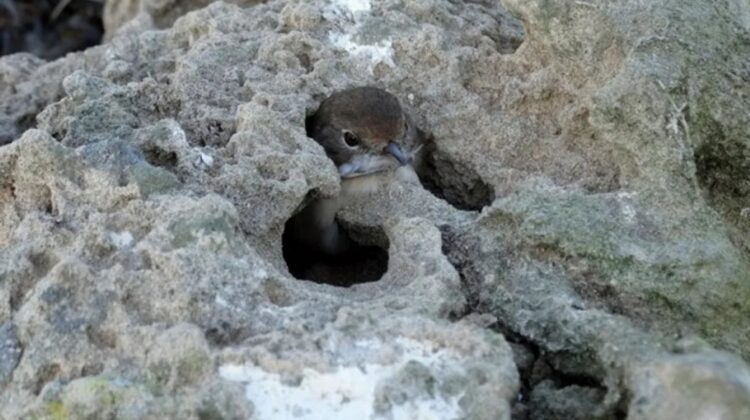
Other birds have been seen being “imprisoned” by falcons in Morocco’s Essaouira archipelago for several days before being fed to the young.
Abdeljebbar Qninba from Mohammed V University in Rabat, Morocco, noticed the peculiar behavior in 2014 while performing a falcon census on the island of Mogador, and he published it in the most recent issue of the journal Alauda. Eleonora’s falcon (Falco eleonorae), which typically primarily consumes insects but has been observed to prey on other migratory birds like the common whitethroat, the tree pipit, and others during the nesting season, is one of the species that call the island home.
Eleanora’s falcon colonies have a tendency to time the hatching of their young with the peak of the annual migration in order to maximize the amount of prey available.
Usually, the falcons start collecting prey a few days before they lay their first eggs in the late summer, anticipating the coming of a few extra mouths to feed. At this time, their diet switches from insects to other birds. By killing their food so early, they run the risk of it drying up or becoming bad before they can eat it.
To avoid this, it was observed that the birds preserved their prey for various lengths of time, preserving its freshness for the chicks’ consumption. This was accomplished by employing a variety of ingenious strategies, such as cramming little birds into confined spaces so they couldn’t fly away. Qninba also mentions that smaller migratory birds were discovered in fissures and holes with their flight and tail feathers stripped, most likely by the falcons.
Birds’ ability to fly depends on the feathers that line their wings, and their ability to navigate is aided by the function of their tail feathers, which serve as a form of rudder. They can’t fly without these, thus they were unable to fly away from the cavities that the falcons had dropped them into.
Although the diet is altered before the eggs are even placed, Qninba and his colleagues hypothesize that the strategy of enclosing birds may start in the days before the eggs hatch in order to assure a ready supply of food that is precisely the perfect freshness when the chicks need their first feed.

Hmm- holding animals captive for days before eating them you say? How disgusting!